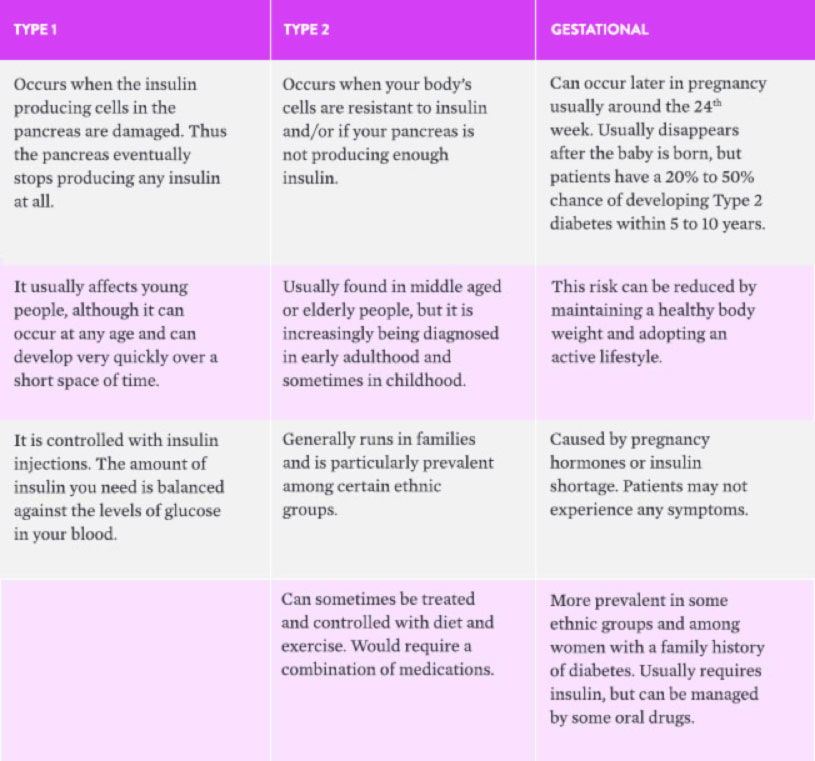WHAT IS DIABETES?
Diabetes is a condition affecting the endocrine system (your glands and the hormones that they produce), whereby the pancreas stops producing insulin or produces too little; or where the cells in your body are resistant to the insulin that your pancreas produces.
- Insulin is the hormone that ‘unlocks’ the cells in your body and allows the sugar (glucose) in your blood to be used for immediate energy needs, or stored away for later use.
- Blood glucose comes mainly from carbohydrates in the foods you eat. These are broken down in your digestive system and then transported by your blood stream around your body to be used as fuel for the energy we need in everyday life.
- Unless you have enough insulin the glucose in your blood cannot be used efficiently, hence causing your blood glucose levels to rise.
- If left untreated, high blood glucose levels can cause long-term health problems. Being diagnosed with diabetes will give you the opportunity to make the necessary changes to your lifestyle, therefore enabling you to avoid some of the risks associated with diabetes.
TYPES OF DIABETES
There are two main types of diabetes: type 1 and type 2. A third type called gestational diabetes can sometimes develop in pregnant women. If you have any of the symptoms listed below, visit your doctor for a complete evaluation. Symptoms of diabetes may include:
- Urinating often
- Feeling very thirsty
- Feeling very hungry - even though you are eating
- Extreme fatigue
- Blurry vision
- Lack of interest or concentration
- Cuts/bruises that are slow to heal
- Weight loss - even though you have not reduced your calorie or food intake (type 1)
- Tingling, pain or numbness in the hands/feet (type 2)

